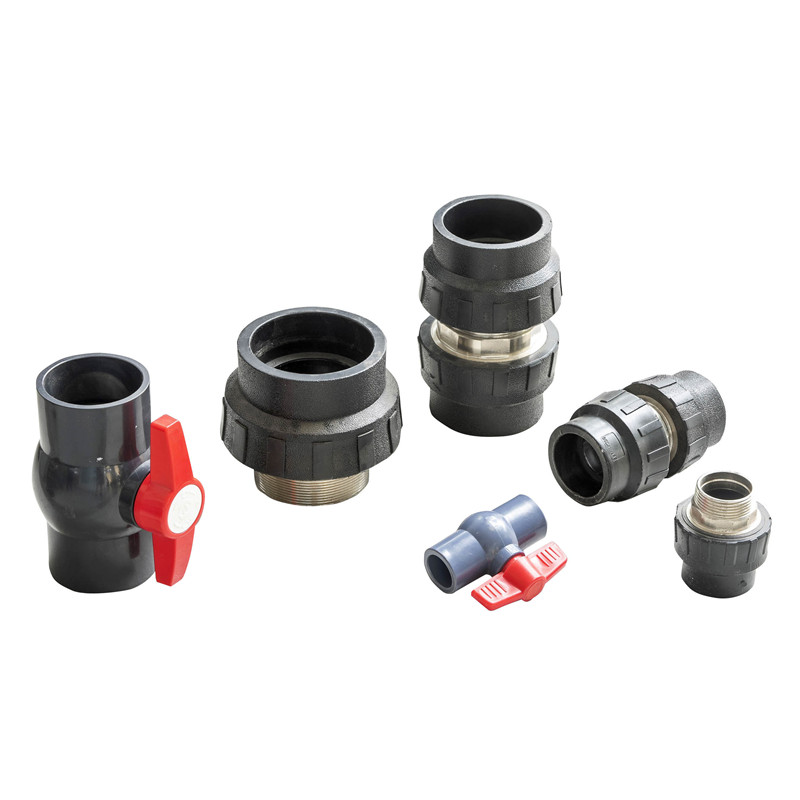Nov . 27, 2024 18:30 Back to list
High-Density Polyethylene Pipes for Agricultural Irrigation Solutions and Efficiency
The Impact of HDPE Agriculture Pipes on Sustainable Farming Practices
In the pursuit of sustainable agriculture, the choice of materials plays a crucial role in improving efficiency, reducing environmental impact, and ensuring long-term productivity. One such material that has gained significant attention in recent years is High-Density Polyethylene (HDPE) pipes. These pipes have emerged as a favorable option for various agricultural applications, particularly in irrigation systems. This article will explore the benefits, applications, and environmental implications of using HDPE pipes in agriculture.
Understanding HDPE Pipes
High-Density Polyethylene is a thermoplastic polymer made from petroleum, known for its high strength-to-density ratio. HDPE pipes are lightweight, flexible, and highly resistant to chemicals, corrosion, and UV light, making them ideal for agricultural use. Their durability allows them to withstand harsh environmental conditions, reducing the need for frequent replacements and maintenance.
Benefits of HDPE Pipes in Agriculture
1. Efficient Water Management One of the primary applications of HDPE pipes in agriculture is in irrigation systems. Efficient water management is crucial in farming, especially in regions prone to drought. HDPE pipes can transport water over long distances without significant pressure loss. Their smooth interior surfaces minimize friction, ensuring a consistent flow of water to crops. This efficiency translates into better crop yields and resource conservation.
2. Cost-Effectiveness Although the initial investment in HDPE piping might be higher than traditional materials, the long-term savings are significant. HDPE pipes have a longer lifespan, reducing costs related to maintenance and replacement. Additionally, their resistance to corrosion and scaling minimizes the risk of clogs, ensuring that water delivery remains uninterrupted.
3. Environmental Sustainability In an era where sustainability is paramount, HDPE pipes offer several environmental advantages. Their production involves less energy compared to other materials, and they can be recycled at the end of their life cycle. Furthermore, efficient water use in farming reduces runoff, minimizing the leaching of chemicals into the surrounding soil and waterways, thus protecting local ecosystems.
hdpe agriculture pipe

4. Adaptability HDPE pipes are highly versatile and can be used for various agricultural practices, including drip irrigation, sprinkler systems, and rainwater harvesting. Their flexibility allows for easy installation in various terrains, making them suitable for both small-scale family farms and large commercial operations.
5. Enhanced Crop Quality Consistent water supply provided by HDPE piping systems can lead to improved crop quality. With controlled irrigation practices, farmers can optimize the water delivered to their plants, ensuring they receive the right amount at the right time. This precision contributes to healthier crops, higher nutritional value, and better market prices.
Challenges and Considerations
Despite their numerous benefits, several challenges need to be addressed when implementing HDPE pipes in agriculture. Farmers must consider the initial costs and potential learning curve associated with new technologies. Moreover, proper installation and maintenance practices are critical to maximizing the lifespan and efficiency of HDPE systems. Training programs and support from agricultural extension services can help bridge these gaps, ensuring that farmers can effectively utilize HDPE pipes.
Future Prospects
Looking ahead, the role of HDPE pipes in agriculture is likely to expand further. With increasing awareness of water scarcity and sustainable farming practices, more farmers are likely to adopt these systems. Technological advancements in the manufacturing and installation of HDPE pipes may reduce costs and enhance performance, making them an even more attractive option for farmers worldwide.
Conclusion
In conclusion, HDPE pipes represent a vital component of modern sustainable agriculture. Their durability, efficiency, and environmental advantages make them an ideal choice for optimizing irrigation systems and improving crop yields. As the agricultural sector continues to evolve in response to climate change and resource limitations, embracing innovative materials like HDPE will be essential for ensuring food security and fostering a sustainable future. By investing in HDPE agricultural pipes, farmers can contribute to a more resilient and sustainable agricultural landscape, benefiting not only their operations but also the environment and society as a whole.
-
High-Quality PPR Pipes and Fittings Durable ERA PPR & PVC PPR Solutions
NewsJul.08,2025
-
Black HDPE Cutting Board - Durable, Non-Porous & Food Safe HDPE Plastic Cutting Board
NewsJul.08,2025
-
High-Quality CPVC Panel Durable HDPE & PVC Panels Supplier
NewsJul.08,2025
-
Double PE Welding Rod Supplier - High Strength, Durable & Versatile Welding Solutions
NewsJul.07,2025
-
High-Quality PVC-O Pipe Supplier Durable 75mm PVC Pipe & Connections Leading PVC Pipe Company
NewsJul.07,2025
-
HDPE Drainage Pipe Supplier – Durable & Corrosion-Resistant Solutions
NewsJul.06,2025

